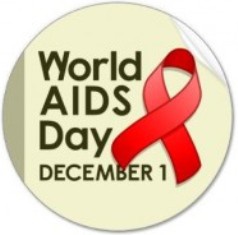
The Ghana AIDS Commission (GAC) says Wa, the capital of Upper West Region, will host the 2013 edition of the World AIDS Day commemoration.
The day, observe on December 1, every year, is dedicated to raising awareness about AIDS caused by the spread of HIV infection.
However, this year’s national HIV durbar will be held on Monday, December 2, because December 1, falls on Sunday.
A statement issued by the Commission on Wednesday, in Accra and copied to Ghana News Agency said, this was made known by Dr Angela El-Adams, Director General of the GAC at the launch of the day at Mantse Agboona in Accra.
Dr El-Adas said the latest statistics suggest that out of the almost 236,000 people living with HIV (PLHIV), about 28,000 are children from 0 to 14 years.
It is estimated that some 121,000 PLHIV currently need anti-retroviral treatment, even though 76,000 are being giving medical care and at least 7,000 more will be covered before the end of the year.
The launch was on the theme: “Getting to zero: Accelerating the National Response towards the Millennium Development Goals (MDGs).”
The prevalence of HIV among pregnant women attending antenatal clinics remains at 2.1 per cent over the 2011 and 2012 periods. “It was estimated that 9,479 mothers will need Prevention of Mother to Child Transmission (PMTCT) services and the Ghana Health Service is consistently delivering on this,” Dr El-Adas said.
The 2012 HIV Sentinel Surveillance report shows a reduction in national adult HIV prevalence from a high of 3.6 per cent in 2006, 2.5 per cent in 2009 and 1.1 per cent in 2012. Infection among the youth spanning 15-24 years has also declined appreciably from 1.7 per cent to 1.3 per cent over the last year. The Director-General of GAC, said stigma and discrimination against PLHIV still remains a challenge and is hindering Ghana’s progress towards achieving MDGs 4, 5 and 6. “We must sustain education on the models of transmission of HIV and the elimination of the fear and ignorance associated with the infection,” Dr El-Adas said.
The launch commences a month-long period of activities that will culminate in the national durbar in Wa.
In her keynote address, the First Lady- Mrs Lordina Mahama who doubles as the Chairperson and Member of the UNAIDS Global Response for the Elimination of Mother-to-Child-Transmission of HIV, praised stakeholders whose efforts had seen Ghana achieve a 76 per cent reduction in Mother-to-Child Transmission (MTCT) of HIV mainly due to the enhanced coverage of anti-retroviral medicines for pregnant women living with the virus.
“Our country is cited as the one, among 25 impact countries, with the highest reduction in the rate of MTCT of HIV. The number of women newly infected with HIV has nearly halved since 2009, which means fewer children could be exposed to HIV,” she stated.
“These achievements stem from shared priorities and committed leadership in all sectors and at all levels of partnership and we simply cannot rest on our oars if we are to attain the MDGs by 2015,” she said.
She noted that: “as individuals, we must test to know our HIV status and access treatment if we tested positive. We must make the effort to stay healthy and not spread infection. We must encourage all pregnant women to test and know their HIV status and ensure all babies are born free from HIV.” “We should practice safe sex by consistently and correctly using condom during sex and reducing the number of our sexual partners,” Mrs Mahama said. The First Lady used the occasion to launch the first Lady’s Advocacy Campaign on the Elimination of the Mother-to-Child Transmission of HIV, promising to continue to intensify advocacy, mobilise resources and establish strategic partnerships in order to achieve a generation free of HIV and keep mothers alive.
The Deputy Chief of Mission at the US Embassy, Mrs Patricia Alsup said Ghana has the reason to celebrate when the rate of new infections in Sub-Saharan Africa has declined by 25 per cent over the last decade.
She said the United States looks forward to continue its support to Ghana’s national response to the AIDS epidemic in three key areas: Health Systems Strengthening; Community System Strengthening; and HIV Services for Key and other Vulnerable Populations.